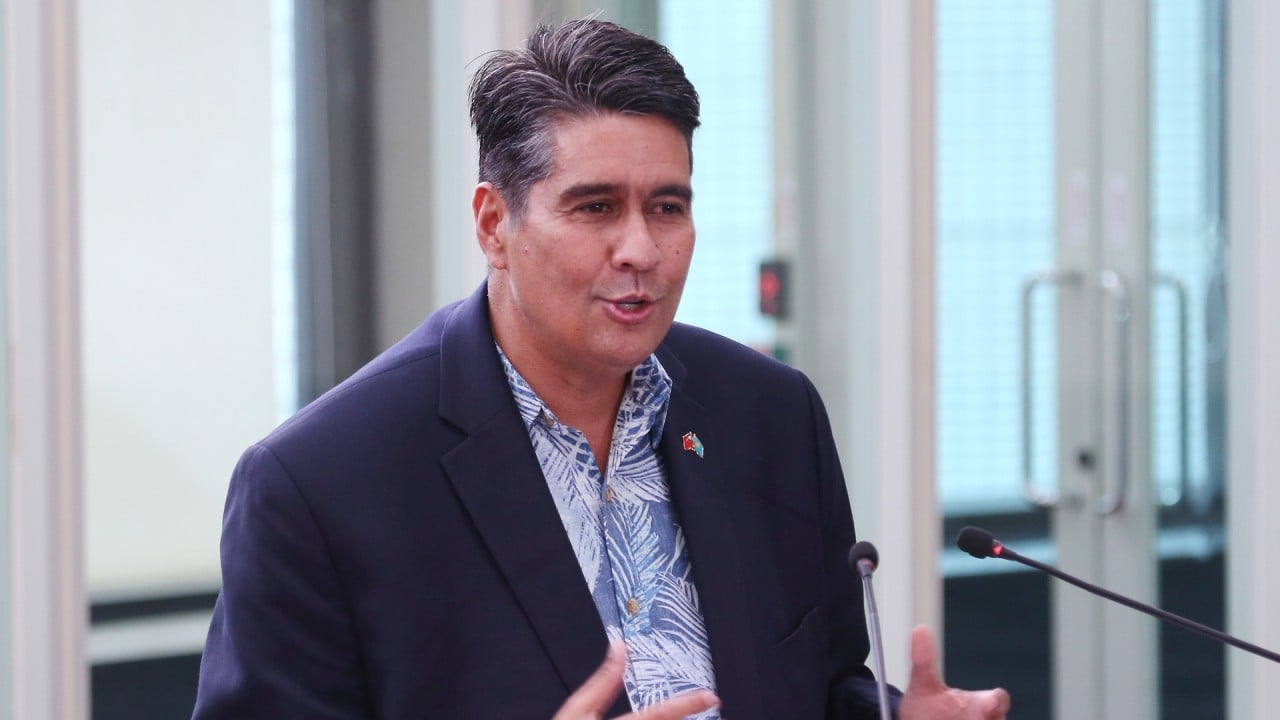
Palau’s president raises threat of pivot to Beijing if US funds are delayed further
- President Surangel Whipps Jnr writes that local leaders want to gain more financial aid from Beijing ‘at the cost of shifting alliances, beginning with sacrificing Taiwan’
- Letter by Whipps comes as US Senate fails to include funds pledged by US President Joe Biden in latest foreign-aid bill
Washington’s delay in providing economic help to the Pacific island nation Palau has made some local leaders more willing to drop diplomatic ties to Taiwan in exchange for Beijing’s financial assistance, the country’s president has warned.
“The leaders here (some of whom have done ‘business’ with the PRC) who want to accept its seemingly attractive economic offers – at the cost of shifting alliances, beginning with sacrificing Taiwan,” President Surangel Whipps Jnr wrote in a letter dated February 9.
The letter was sent to a US senator whose name was redacted from the copy first posted on Wednesday by Indo-Pacific expert Cleo Paskal on the social media platform X, formerly known as Twitter. Whipps reposted Paskal’s post on his own X account.
Palau, an archipelago of more than 500 islands, is one of 11 nations that continue to maintain diplomatic ties with Taiwan. Since 2016, Taiwan has lost around a dozen diplomatic allies.
Beijing considers Taiwan a renegade province that is to be united eventually with the mainland, by force if necessary.
Most countries, including the US, do not recognise Taiwan as an independent state, but Washington is opposed to any attempt to take the self-governed island by force and is committed to supplying it with weapons.
Early Tuesday morning, a bipartisan $95 billion foreign aid package passed the US Senate but it failed to include money for the newly negotiated Compact of Free Association (Cofa), a pact that binds the US closely with three Pacific island nations – Marshall Islands, Micronesia and Palau.
The bill, highly politicised in this presidential election year, is primarily intended to expedite US$60 billion in aid to Ukraine. But it is unlikely to pass the House, with Speaker Mike Johnson saying the chamber would not be “rushed” in its consideration.
First signed in the 1980s, Cofa grants the US military access to the land, air and sea of the three Pacific island nations in exchange for financial aid and a legal basis for their citizens to live, work and go to school in the US.
To counter China’s influence, in March 2023 US President Joe Biden pledged US$7.1 billion over 20 years to the three countries, the biggest-ever budget request for the pact.
But the funds remain stuck as American lawmakers prioritise aid for Ukraine in its war against Russia and Israel in its conflict with Hamas, as well as strengthening Taiwan’s defences against any possible invasion by Beijing.
The Cofa programmes for the Marshall Islands and Micronesia lapsed on September 30, and no US aid is now going to them. Palau’s pact is set to end this September, but its economy is struggling with elevated debt, high inflation and fewer tourists.
“Every day it is not approved plays into the hands” of the Chinese Communist Party, Whipps wrote of the latest pact, adding that China had already “offered to ‘fill every hotel room’ in our tourism-based private sector – ‘and more if more are built’”.
Whipps reminded the senator that Cofa allows the US shipping lanes that China “covets – effectively extending the US border for military purposed to Asia”.
“A US military expert testified that it would cost $100 billion to replace this militarily,” he noted.
The Whipps letter came as the Biden administration observes the two-year anniversary of its Indo-Pacific strategy. On Thursday, administration officials attended an event in Washington to discuss policy achievements in the region.
Ely Ratner, the assistant secretary of defence for Indo-Pacific security affairs, described Cofa as one of the “most important things that the administration can do this year in terms of our Indo-Pacific strategy”.
Noting that citizens in freely associated states participate in the US military at “very high rates”, he added that the Cofa pacts were an “opportunity for Congress and the administration to work together this year, and we just have to get it done”.


